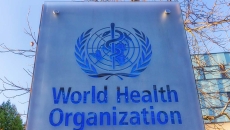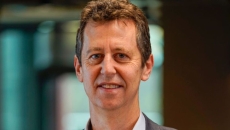Clinical
Discussing takeaways from the recent HIMSS23 Nursing Informatics Forum, Tony Black, director of federal healthcare for Kyndryl, talks about the demands nurses face and how technology can improve the way they deliver care.
There are ways technology can help ease clinician burden. Kathleen McGrow, chief nursing information officer at Microsoft and a 2023 HIMSS Changemaker Award recipient, explains how.
While the World Health Organization says it's "enthusiastic about the appropriate use" of large language models such as ChatGPT, it has deep concerns about artificial intelligence being used in "safe, effective, and ethical ways."
Also, Dr Marco Briceno has been officially appointed as CEO of NT Health.
To boost retention and reduce burnout, electronic health records should be redesigned to help clinicians rekindle their passion for treating patients and balance their work and life, says Sandra Johnson, SVP of client services for CliniComp.
The new Community Care Outcomes Maturity Model helps organizations improve outcomes for the non-acute care that most people use each day, says Natasha Ramontal, digital health strategist for community outcomes and analytics for HIMSS.
HIMSS23
Digital cognitive assessments analyze a patient's voice and responses to better inform cognitive care and reduce clinicians' administrative burden, explains Dr. John Showalter, CPO at Linus Health.
AI-enabled care coordination enables patient-specific decision-making at the point of care. Kathy D. Ford, chief product and strategy officer at Project Rōnin, explains.
Healthcare organizations need to go from a reactive cybersecurity stance oriented around point solutions to developing comprehensive strategies to mitigate risk, says R. David Moon, chairman and founder of Arx Nimbus.
The ATA applauded the extension through Nov. 11. Working with the Substance Abuse and Mental Health Services Administration, the DEA has also offered a one-year grace period for doctor-patient telemedicine relationships established before that date.









